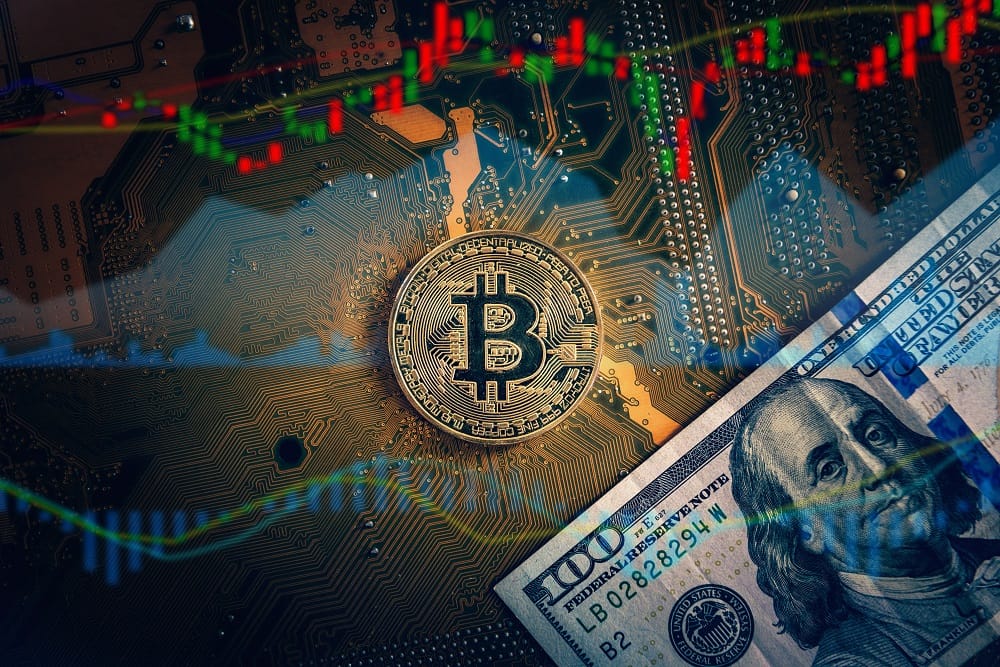Expectations about the CPI are favorable for financial markets.
Bitcoin volatility will increase as the CPI presentation date approaches.
The price of bitcoin (BTC) started the week on the rise. It even touched the $64,000 mark and, at the time of this publication, it can be seen in the CriptoNoticias Calculator that it is trading for $62,045 on the main exchanges.
For now, bitcoin continues in the downtrend which has held it prisoner since March, when it reached its most recent all-time high, above $74,000, as can be seen in the following chart. TradingView:

For the remainder of the current week, what high volatility can be expected, especially as Thursday approaches. That precise day, in the United States – the world’s main financial power – inflation data will be released. These could impact future interest rate cuts, which have consequences for volatile assets such as bitcoin, cryptocurrencies and stocks.
According to Simon Moore, financial analyst at Forbes, the inflation forecasts already being made by the Cleveland Federal Reserve are reassuring. Moore explains:
«Monthly inflation of 0.1% is expected for the general consumer price index (CPI) for September and monthly core inflation of 0.3%. If these forecasts come true, they would give the FOMC more assurance that inflation is now under control. However, some minor concerns remain.”
Simon Moore, financial analyst.
Among these “minor concerns” the analyst includes housing costs, which constitute a large part of CPI inflation. These costs, says Moore, “continue to increase at a relatively rapid annual rate of 5.2% starting in August 2024.” And, to achieve the inflation objectives proposed by the Federal Reserve (Fed), it is necessary for housing costs to “cool down.”
Additionally, the Fed is still monitoring unexpected situations that could cause inflation to resume. Moore gives as an example a dockworkers’ strike that ended with a significant wage increase for that sector.
Kim Forest, investment director at Bokeh Capital Partners, maintains that the Fed continues to depend on all this accumulation of macroeconomic data to decide next adjustments in interest rates. Therefore, “the end of this week is important to see if inflation is really controlled or not”, says.
What does the price of bitcoin have to do with US inflation?
The question that leads this intersection is extremely valid. What does inflation in a country have to do with the price of bitcoin, if this is a decentralized digital currency that does not depend on any government?
To answer that it is necessary to understand that bitcoin price is determined by supply and demand. That is, it is the market (the set of people and entities that buy and sell BTC) that determines through transactions what price bitcoin has.
Taking that into account, it will be easier to understand that Everything that impacts investors’ decisions will impact the price of bitcoin.
High inflation in an economy as influential as the United States can lead the Federal Reserve to adjust its monetary policies, particularly interest rates.
When interest rates rise, investors often choose what is perceived as safe and flock to Treasury bonds, for example, to earn returns on their capital. Instead, when rates fall, investors flock to perceived “risky” assets (like bitcoin) in search of higher returns.
Likewise, future inflation expectations and monetary policy responses can have a significant effect on the cryptocurrency market. If investors anticipate that the Federal Reserve will take a more relaxed stance on interest rates due to controlling inflation, this could increase the flow of investment into bitcoin, driving up its price.
But that’s not all. If the US Federal Reserve takes aggressive action against inflation, other banks may follow suit, thus affecting global currencies and potentially increasing the attractiveness of bitcoin as an alternative investment.
Therefore, bitcoin (although it is an independent monetary system) is not isolated from the rest of the world in terms of its market price.
With what has been explained so far, it can be inferred that, if the expectations regarding inflation data that will be released this week are met (and if the military conflict in the Middle East does not escalate to greater proportions than it currently has), the price of Bitcoin could react upwards, as investors anticipate that interest rate declines will continue.
On the other hand, if expectations are not met and are unfavorable for the economy, bitcoin could react with a sharp fall. Considering that medium and long-term expectations remain bullish for bitcoin, this drop could be considered a buying opportunity.
Disclaimer: The views and opinions expressed in this article belong to its author and do not necessarily reflect those of CriptoNoticias. The author’s opinion is for informational purposes and under no circumstances constitutes an investment recommendation or financial advice.






Leave a Reply